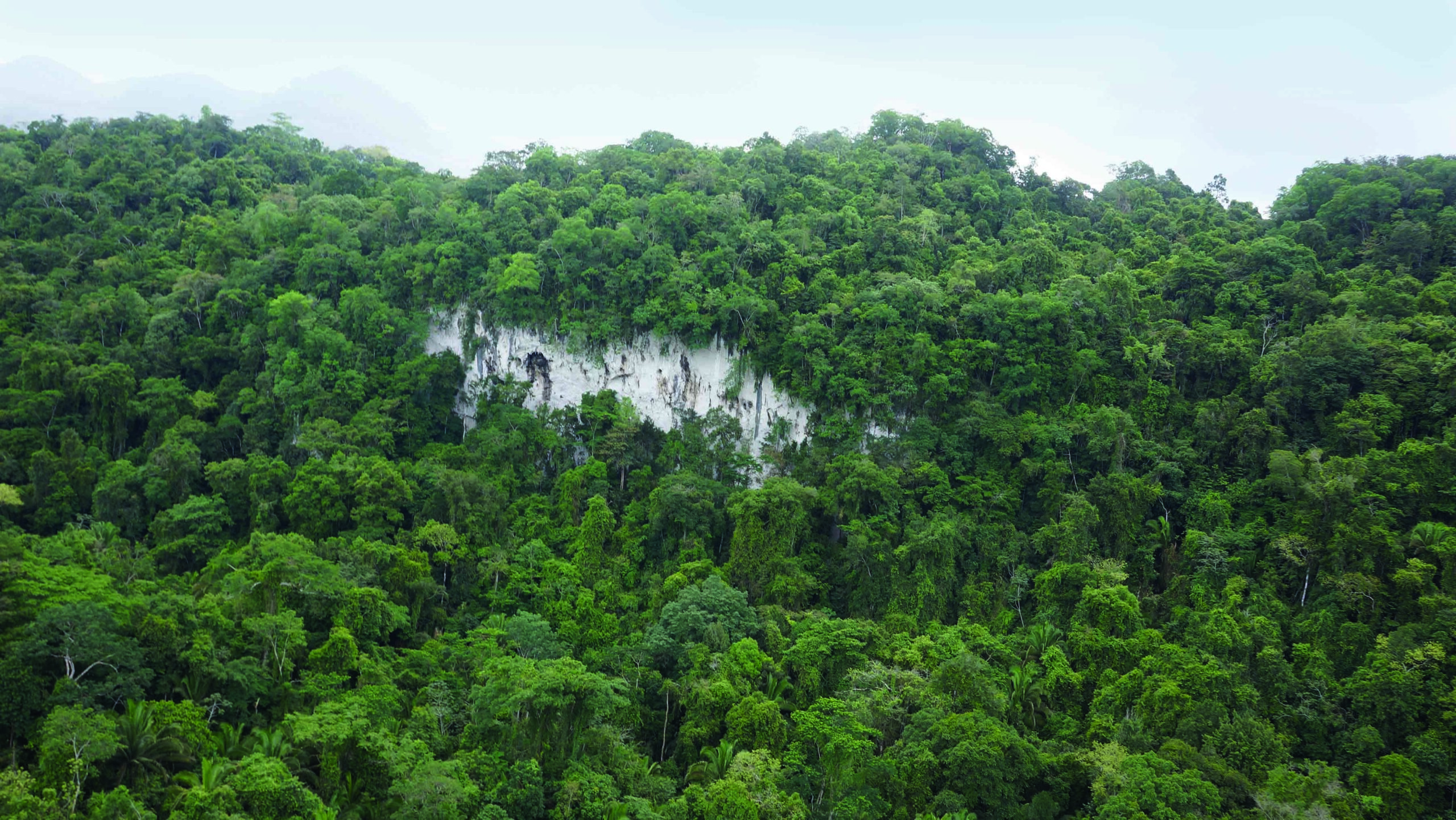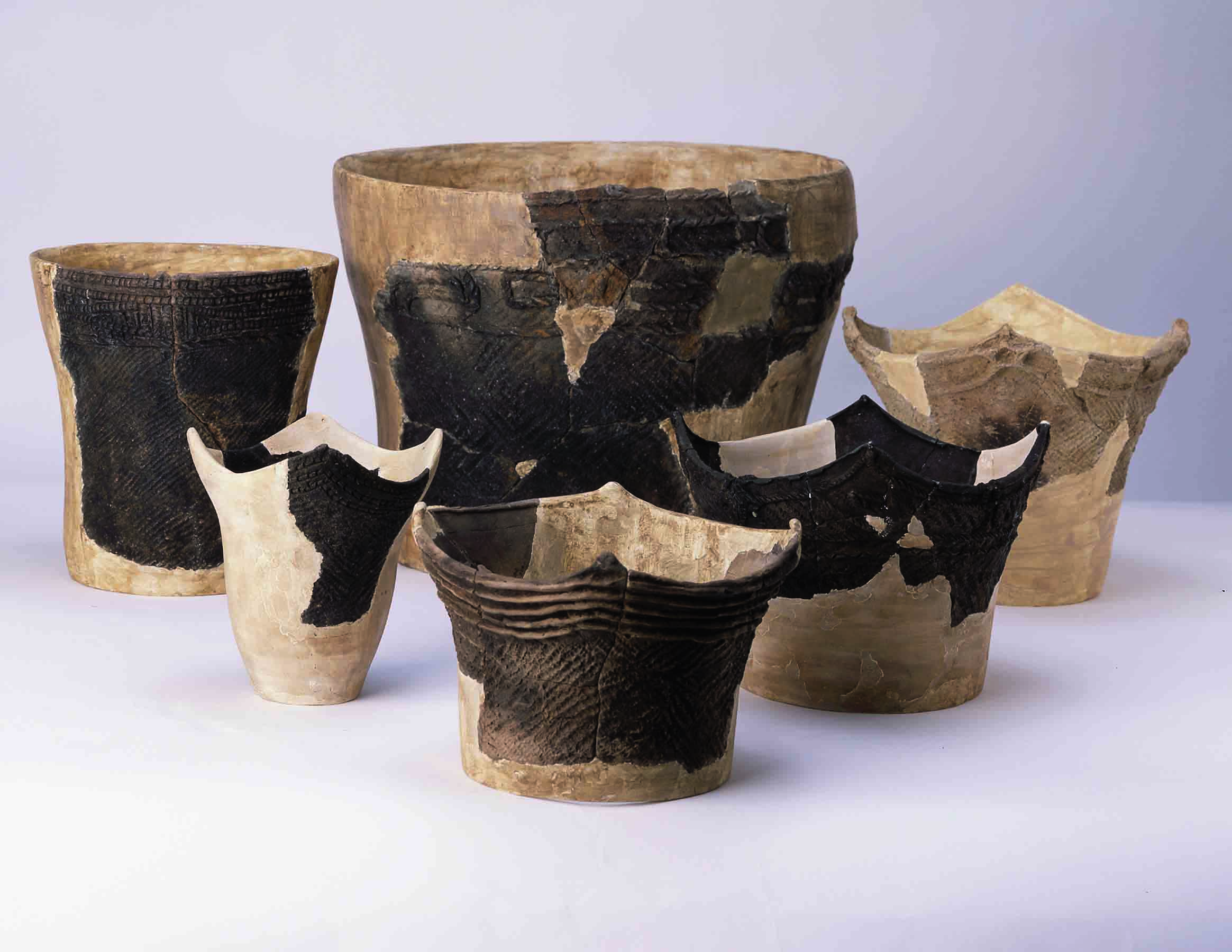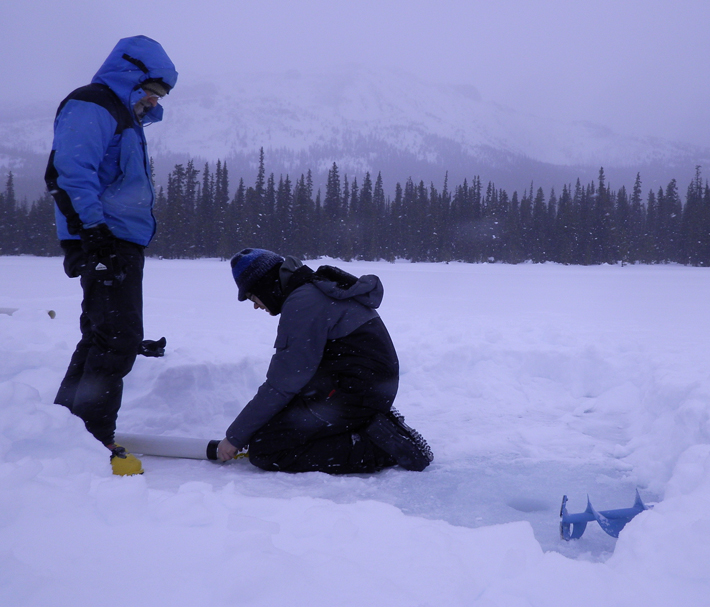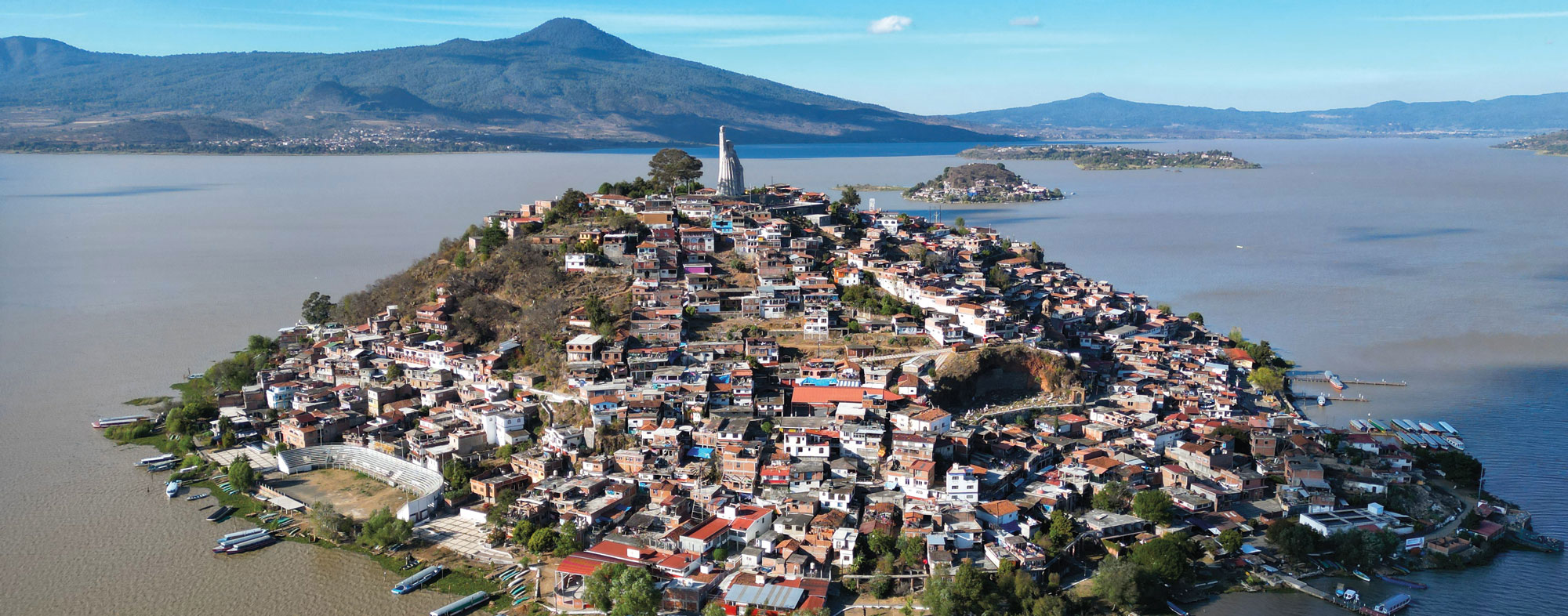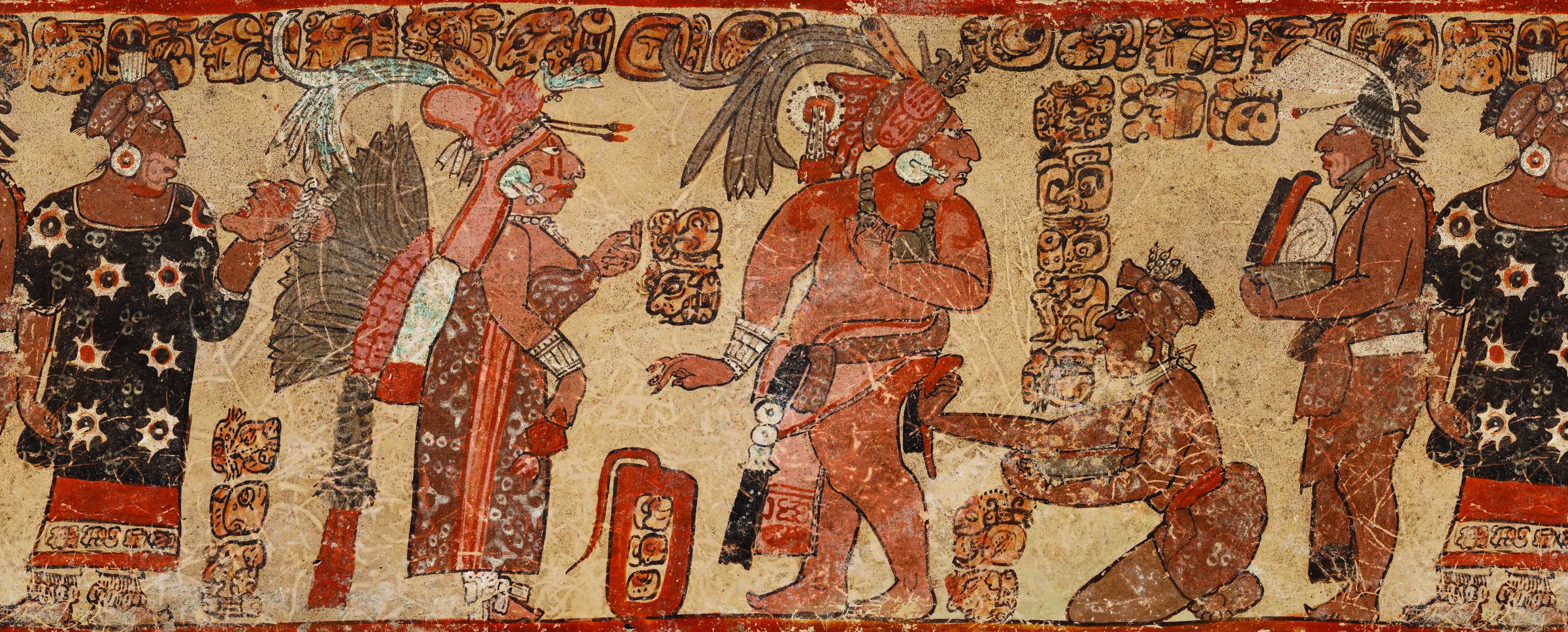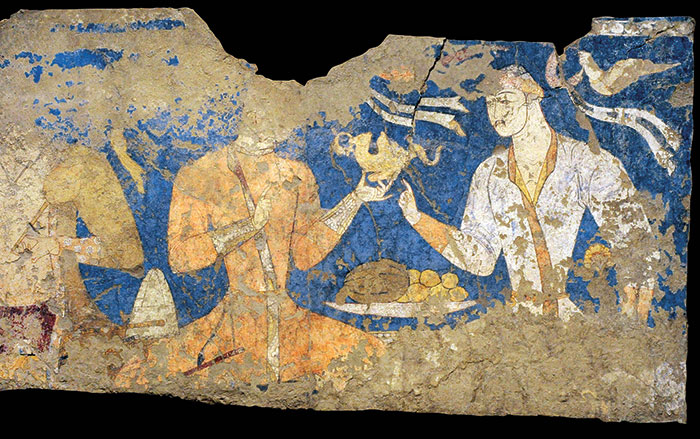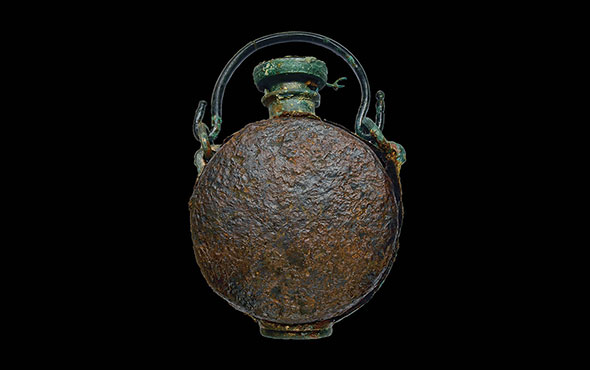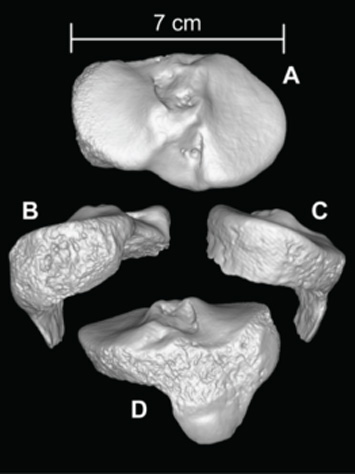
GALVESTON, TEXAS—According to a statement released by Texas A&M University at Galveston, a human bone belonging to a member of the indigenous Lucayan people, the first group Christopher Columbus encountered in the Americas, has been discovered in a sediment core taken from Great Abaco Island in the Bahamas. Environmental scientist Pete van Hengstum, maritime archaeologist Richard Sullivan, and their colleagues radiocarbon dated the tibia fragment—only the second example of Lucayan remains found on the island—and associated organic material from the core, determining that the individual lived on the island between A.D. 1290 and 1295. This precise dating provides direct evidence that the Lucayans had migrated to the island by the thirteenth century. Sullivan said that stable isotope analysis of the bone indicated that the individual's diet included fish, berries, fruits, and roots. By the mid-1520s, the Europeans had wiped out the Lucayan population in the Bahamas through disease and enslavement. To read about the discovery of the remains of a slave ship in the Abaco Islands, go to "World Roundup: Bahamas."


